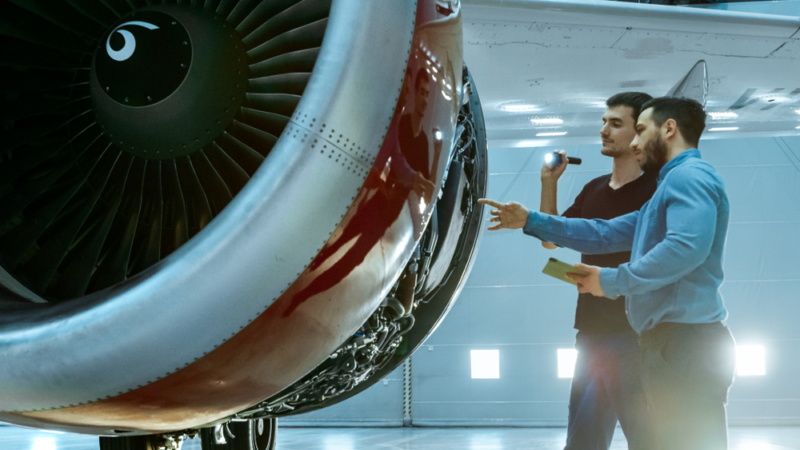
France’s aviation and aeronautics sector are in a strong position within global aircraft manufacturing, research and development. We see the knock-on effect throughout the industry. Aeronautics is the leading export sector in France, with general aviation bringing €4 billion into the French economy.
Proving now is the time to consider where you’re most suited in this high flying industry. By taking a close look at what courses are available, you can decide which part of the sector is most suited to your skills and ability.
ISAE – Supaero – isae-supaero.fr
Based in Toulouse, the Institut Supérieur de l’Aéronautique et de l’Espace offers science and engineering degree programmes that include the following: all information is taken directly from the website:
Ingénieur ISAE-SUPAERO (MSc) – this program combines advanced level scientific training along with a focus on international experience, economics and entrepreneurship. International students are eligible for global mobility and double degree programs over one semester or two years of study.
Master of Science in Aerospace Engineering – a two-year multidisciplinary program delivered in English, the MSc in Aerospace Engineering designed to ensure that students acquire skills in aeronautics and space-related engineering science, technology and design. It is open to students who have a Bachelor’s degree in science or engineering.
CNAM-ISAE – An engineering apprenticeship training program – this aerospace engineering program is written with the CNAM; the French organisation specialised in continuing education. The program alternates in-class courses with in-company learning.
Courses range from €4,800 for EU students to €11,000 for International students; other costs involve €500 – €800 per month to live on site.
ESTACA – estaca.fr
ESTACA is based just outside Paris. ESTACA offers the following degree courses. All information is taken from the website.
Aeronautical Engineering (MSc) –
Being an engineer in aeronautics means working on the design and operation of aircraft (aeroplanes, helicopters, balloons) and embedded systems. Involving the professional conduct of the development programme, carrying out tests on the ground or in flight, developing production methods, optimising quality processes, or prospecting and negotiating contracts.
12 months of mandatory work experience is required, and there will be four projects that must be submitted.
Aerospace Engineering (MSc) – Spatial Engineer –


Royalty-free stock photo ID: 1161854026
The course focuses on the development of access to space; with applications such as Earth observation or telecommunications, activities related to research in a zero-gravity environment, the presence of man in outer space. The continuation of the development of the large families of satellites such as Spot; construction of mini and micro-satellites, preparation of various interplanetary probes and the missions to Mars. All of these are subjects that are currently under review.
Becoming an engineer in the space sector means working on the construction of launchers, spacecraft (satellites, probes, shuttles, orbital stations) and thrusters, and also taking part in the launch and operation of satellites.
Costs involved are from €8,000 for EU students to €13,000 for international students, with a combined price of €66,982 for theory and flight training costs. Other costs involved are €500 – €800 per month to live on-site.
Institut Polytechnique des Sciences Avancées (IPSA) – ipsa.fr
With campuses located in Lyons, Marseilles and Toulouse, this private postgraduate school offers the following courses:
Engineering degree (BEng) and Aerospace Engineering (BSc)
With no specifics about the course on the website; apart from the fees to all students of €6,000 per year, the overview is as follows:
Engineering Degree issued by IPSA is a French Master’s degree accredited by the CTI. It positions the holder as able to address any issue related to air and space. Graduates will have developed broad general engineering knowledge as well as highly specialised skills in the fields of aeronautics and space.
The training at IPSA also allows graduates to work in other technically advanced fields similar to aerospace, such as automotive and maritime transport; where the techniques and technologies used are close to those in aeronautics.
Andorra Aviation Academy – andorra-aviation.com


Royalty-free stock photo ID: 716013229
Located in Andorra La Vella, this is an intensive 18-month course designed to meet the requirements for flight crew positions with European airlines and to work as a pilot on American registered aircraft.
Taken directly from the website at Andorra Aviation Academy:
Upon graduation, qualified with at least:
EASA CPL commercial pilot’s license and Instrument Rating, Advanced UPRT
EASA ATPL theory
EASA MCC Airbus A320 (Multi Crew Cooperation) course
Aviation English Proficiency (TOEIC & FCL55D)
Entry dates for this programme are January and September 2021 and the fee to complete this course is €94,000
Education requirements are not advertised; so anyone wishing to apply for this course should approach the academy directly for details. Good luck, future aviation candidates!






